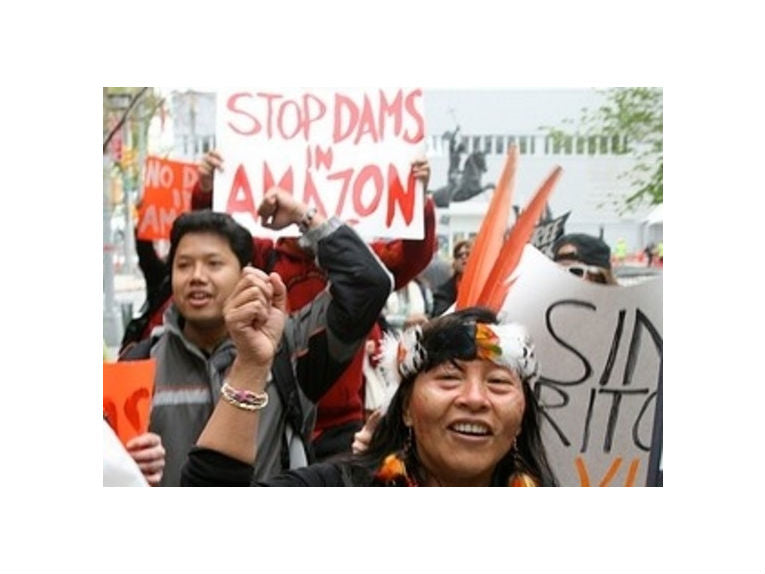On Wednesday the Brazilian government gave its final approval, to the poring of 25 million cubic meters of concrete, across one of the Amazon's most important tributaries - the Xingu - as the Bel Monte dam was given the go-ahead ignoring the human rights of the indigenous Amazon population.
Despite worries over its effect on the river flow upstream, the displacement of 20,000 locals and the impinging of indigenous tribal lands, the Bel Monte dam license was waved through by Brazil's environmental agency, IBAMA. It sees hydro-power as a clean energy source, even though it is known that mega-dams result in mega-releases of methane, a powerful greenhouse gas.
Now Amnesty International has lent its weight to opposing the construction of the Bel Monte mega-dam, pointing out that the rights of the local indigenous peoples must be fully respected in any such project. And those communities have repeatedly opposed many aspects of the Bel Monte dam, being particularly worried about the possibility of the flow of the river's 'Big Bend' being severely depleted.
But the official organization representing the indigenous community in Brazil, FUNIA, has already signed up to the licensing of the dam. Internal politicking is suspected by some as clouding that approval - a January 2011 report, undertaken by FUNIA staff themselves, in fact recommended opposition to the license being granted. The rough-riding over local concerns has also drawn flak from the Inter-American Commission on Human Rights (IACHR), which highlighted a lack of meaningful consultation.
Americas Deputy Director at Amnesty International, Guadalupe Marengo, said 'Brazil must abide by the recommendations issued by the Inter-American Commission on Human Rights to suspend the construction of the Belo Monte dam until the rights of local indigenous communities are fully guaranteed.' That should include a proper Social and Environmental Impact Assessment being completed, and made accessible to the local tribes, in their own languages.
In addition to the worries about the direct effects of the dam itself, the influx of over 40,000 migrant workers into this remote Amazonian region is likely to create its own hazards. Past such-migrations, to service big development projects, have led to conflict between migrants and local tribes-peoples, as well as to the spread of new diseases amongst them.
Many also worry that this first big Amazon dam will be the 'trojan horse' for the construction of many others in the basin - and further impinging on native areas. As Marengo put it, 'continuing with the construction of the Belo Monte Dam before ensuring the rights of indigenous communities are protected is equivalent to sacrificing human rights for development.'
(Top Image Credit: © Amazon Watch. Caption: Indigenous leaders from Brazil protest at the UN against the Belo Monte dam.)










